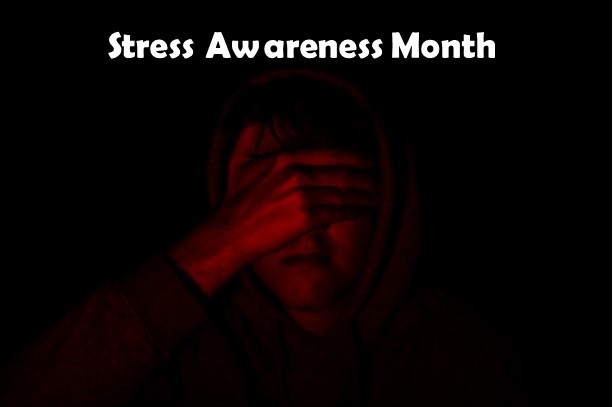
Stress Awareness Month
pril is Stress Awareness Month and when it was founded in 1992 the aim was to raise awareness of stress and its causes and cures. Thirty years on and the recognition of stress is better but there is still a stigma attached to admitting you may be feeling it and therefore seeking the help needed so more awareness is key. There is no doubt that in the last two years stress levels for everyone have been greater and at the moment with the ongoing economic effects, the stressors show no signs of reducing. Being aware of stress isn't a solution in itself, but with awareness comes acceptance and ultimately as people accept it, help can be achieved. A study from the Stress Management Society found that 65% people have felt more stressed since the pandemic. Stress can affect your physical as well as your mental health, you may be unable to change the stressors but by being aware and seeking help could stop long term conditions.
The theme that has been picked for this year is "community", picked because during the pandemic loneliness and isolation became highlighted in a way it never had been before and the effects that this can have on our mental health. One positive from the pandemic is that a sense of community akin to that of 1940's war time Britain was established and in many cases has been continued. Community is defined as a group of people with a unified purpose, goal, interest or area so being part of a community isn't necessarily about getting on with your neighbours. Your community could be the people you do a hobby with, it could be family, it could be a group of friends or indeed it could be the people you live close to. It is vital that those communities we formed and relied on in the pandemic are continued because it is another system to stop people feeling lost and alone. People who are more connected to family, friends, or their community have been shown to be happier, physically healthier and live longer, with fewer mental health problems than people who are less well connected. In fact people in neighbourhoods with higher levels of social cohesion experience lower rates of mental health problems than those in neighbourhoods with lower cohesion, regardless of how deprived or affluent the area is. Western cultures generally suffer more from poorer mental health than those from developing countries and this is believed to be due to developing countries having a greater sense of community.
Spending time with others has various and many benefits for our mental health. Whatever it is, a meal, sports, hobbies, volunteering, activities like these all give meaning and purpose to our lives and make us feel more confident. Having the opportunity to laugh and chat with others in social situations serves to temporarily distract us from our worries by turning our focus outwards instead of inwards. And being able to talk through problems and share our worries with others decreases our stress levels. As the saying goes, a worry shared is a worry halved, and less worry equals less stress. Volunteering is particularly good for reducing stress because it forces us to turn our focus outwards. And if that voluntary work involves helping others with their problems it could help us think more positively about our own difficulties. Also working with others towards a common goal gives a great sense of achievement and worth. These factors all weigh heavily on the positive side of the mental health spectrum.
So with all this in mind and whatever your own community situation is The Stress Management Society has come up with a 30 day challenge to help us to change our mindset and hopefully lower our stress levels. The dates start on 1st April but can be started at any time. They are encouraging you to pick one action each for your Physical, Mental and Emotional Wellbeing to carry out every day. It takes 30 days to turn actions into habits, which is why this is a month-long programme. The 30-day challenge will maximise your chances of turning useful knowledge and techniques into positive behavioural change. For more information or to take part click here: 30 Day Challenge
If you want to talk to someone from MPI we are in the privileged situation of having several mental health first aiders and can help with an ear, outside of your normal circles when it is too close to home. Please follow this link to get their details: Link
